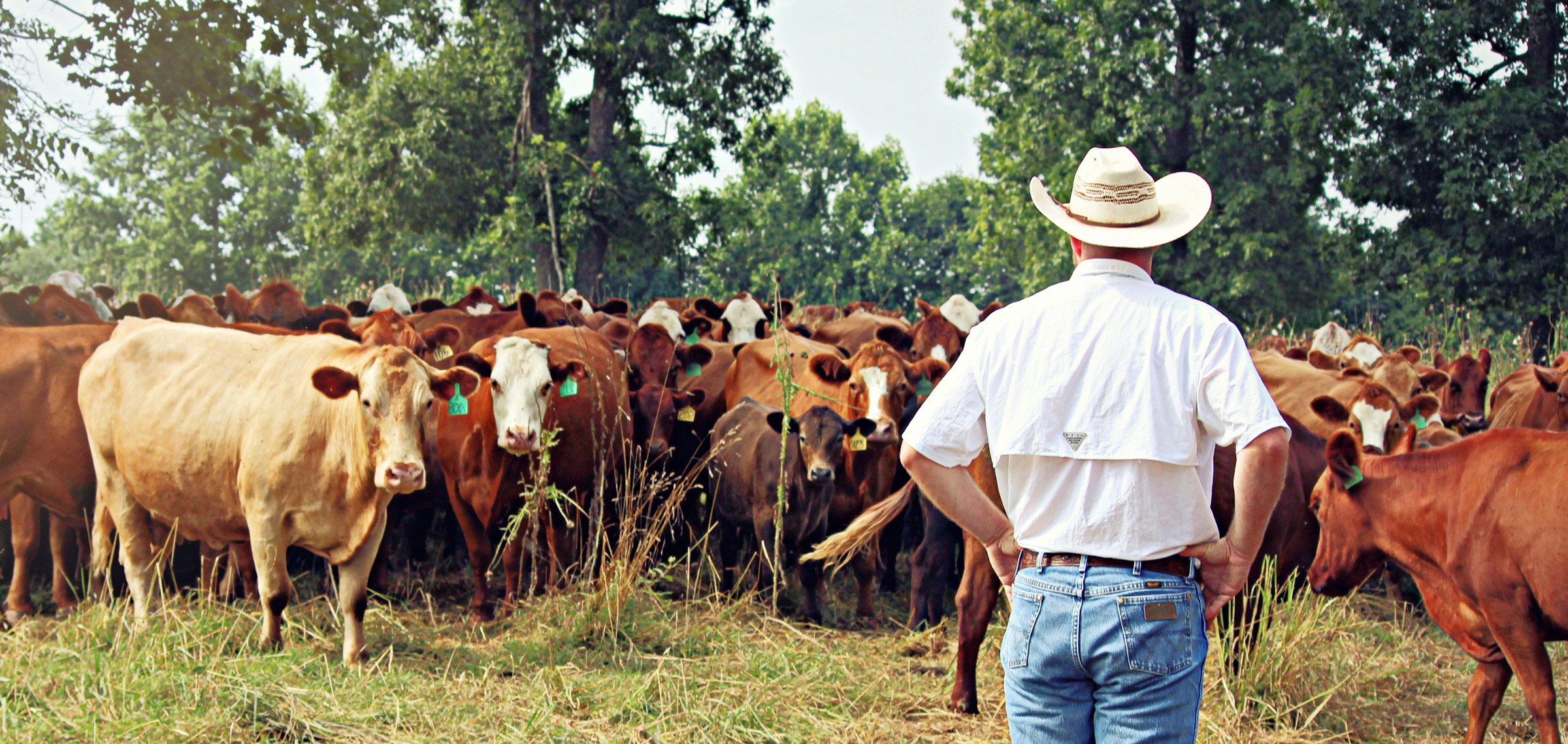By Patricia Mcdaniels | Photos by Lauren Neale
“Who dreams of owning a meat-processing facility? I mean, how weird is that?” Lauren Neale says as she recalls the hopes and aspirations her husband, Ben Neale, expressed during their courtship.
For Ben, he saw it as a natural progression of his career as well as a responsibility he felt.
“From the business perspective, there are a number of indicators that the cow and calf sector is due for consolidation. In short, I believe that will make lean times for producers in the days to come,” he says. “Owning a plant allows me to offer more marketing opportunities to myself and others in the local area to help capture the value of what we raise as that occurs.”
But he also knew there was a need in his community when the former owners of a meat-processing facility retired.
“Growing up there and having the ability, I felt somewhat obligated to fill the gap,” he says. “It’s like pumping septic tanks—very few people want to do it, but most everyone still needs it done.”
Turns out Ben’s dream—which actually includes managing a small-scale beef-supply chain all the way from calf to final product sales—isn’t really that far off the grid. Plenty of producers, across all sorts of commodities, seek to control their economic destinies through the production and sale of high-quality, locally grown commodities. And plenty of consumers are seeking to purchase such products.
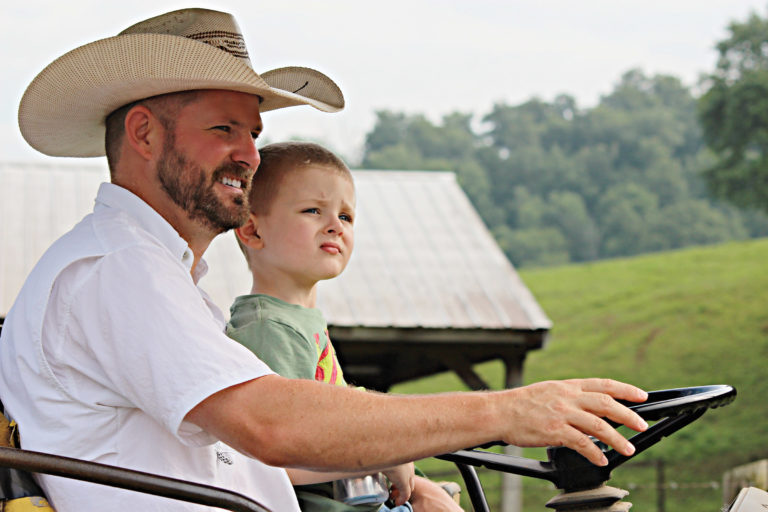
The number of farmers and ranchers selling directly to consumers has skyrocketed in the last two decades. The movement to buy locally produced food for its freshness and to reduce the food’s carbon footprint by cutting down on its “miles traveled” has traversed across the nation through all forms of media—especially social media—through mantras like “Buy local” and “Know your farmer.” From product source labelling at big-box groceries to more personal sales at farmers’ markets or through consumer-supported agriculture operations, people are seeking out locally produced products.
Rob Holland (Knoxville ’93, Martin ’91), director of the UT Center for Profitable Agriculture (CPA), says Tennessee was No. 1 in the nation in farmers’ market growth in 2014. The CPA—a partnership between the UT Institute of Agriculture (UTIA) and the Tennessee Farm Bureau Federation—assists Tennessee farmers in developing sustainable value-added agricultural enterprises, including direct-marketing enterprises.
In the Neales’ case, the product they market directly to consumers is beef from cattle raised on their 280-head operation in Giles County, Tennessee. Cattle is produced in all 95 counties in Tennessee, but unlike most of the state’s producers, the Neales harvest animals and process beef at their own facility. The couple purchased an existing custom-harvest facility in 2017 in Ben’s hometown of Lynnville just three years after they tied the knot and with the added responsibility of a growing family. Young son, Corban, is now 5, and his sisters Abigail and Elizabeth are 2 and 1, respectively. Ben mostly works the businesses, while Lauren handles the marketing. To make ends meet, they both juggle the children and jobs off the farm.
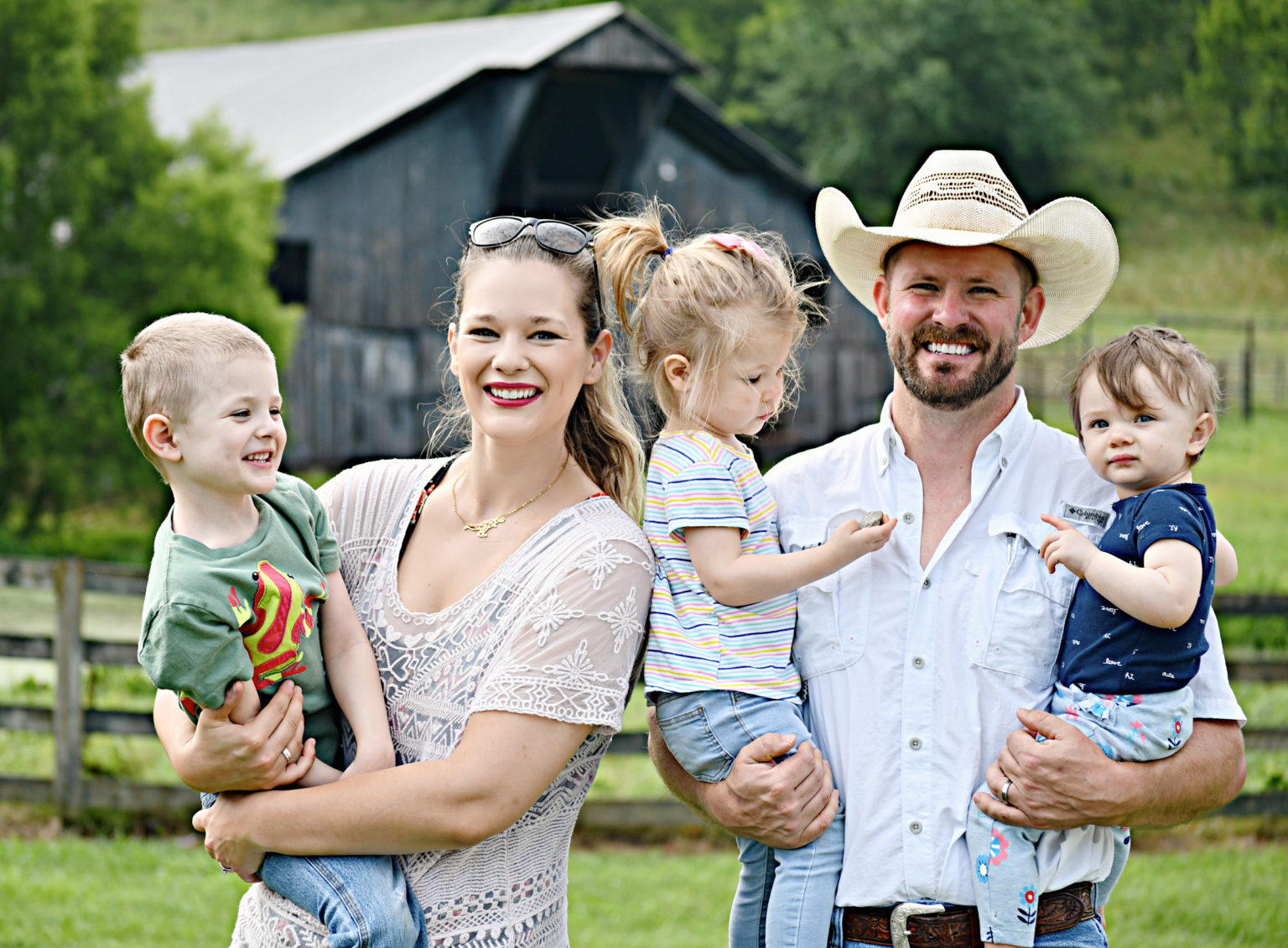
Their harvesting and processing facility is located next door to Ben’s childhood home, a small farm where he learned to haul hay by age 11. He also worked cattle at the local livestock sale barn until he left for college. Ben is a three-time graduate of UT Martin: ’01 with a B.S. in agriculture, ’06 with a Master of Agriculture in agricultural operations management and ’07 with an MBA.
Ben and Lauren named the “dream” operation Light Hill Premium Meats. It’s a facility that operates under USDA inspection, which means the Neales can sell their farm-raised beef processed in the facility as well as provide custom processing for other producers, who may then sell packaged products directly to consumers under their own labels.
Ben has worked in all facets of the beef industry. He’s been an age and source verification agent and a sales consultant for a large-scale processor, and he is now managing the reproduction cycles and nutrition of his own cattle. He says owning a processing facility allows him to ensure a quality product from start to finish.
“For me, for my process customers and for the consumers of our products, it’s about building trust,” he says. “People want the knowledge and security of a quality product, and by owning and operating Light Hill, we can supply that.”
When the Neales first opened their facility, they reached out to the CPA for guidance and a feasibility study, which, as it turned out, was difficult to model as there are so few USDA-certified facilities in the state. Holland says the CPA now looks to Light Hill Premium Meats to provide input and assistance as others consider direct meat marketing. The Neales sometimes provide educational tours to other entrepreneurs considering direct sales of beef.
Ben adds that the information from UT Extension had been instrumental in his continuing education about running the businesses, and he uses the extension publication Improving Communications with Your Beef Processor to ensure that customers understand the nuances of ordering custom-processed beef. For example, the amount of refrigerated beef that a 1,200-pound steer provides is more along the lines of 600 to 700 pounds of beef, depending on a number of variables. Of course, not all that beef is in the form of steak.
As for how the direct marketers, particularly those raising beef cattle, have fared since the beginning of the pandemic, Holland says business has been booming.
“Many direct-from-the-farm meat marketers are referring to 2020 as their best marketing year ever. Marketing opportunities have been exceptional, and sales have continued to be strong,” Holland says.
Even more interesting to Holland is that the demand seems to be local. “So far demographics seem to be trending toward new, local customers, with producers selling directly from the farm or through off-farm market stands and farmers’ markets.”
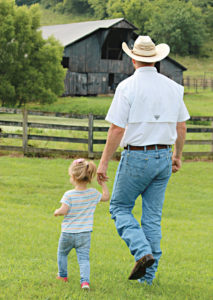
The first day that Light Hill Premium Meats set up its popup sales spot along a highway near Columbia, the Neales sold out their inventory within three hours, without advance advertising or sales reservations or even signage. That day Lauren encountered a young mom in the grocery dumbfounded that she could not find ground beef. During the pandemic, hamburger had become the new toilet paper. So Lauren took the news of locally available beef to social media and developed some signage for a proper sales tent, while Ben ramped up processing so their neighbors would have the products they both wanted and needed.
Since then, Light Hill Premium Meats has taken more advance orders online, with near contactless deliveries at the pop-up tent. “We’ve done some online, web-based shipping sales,” Ben says, “but most of our customer base has been local.”
Charles Hord, executive vice president of the Tennessee Cattlemen’s Association and a 1996 UT Knoxville graduate majoring in ag business and economics, says beef shortages are related to processing capacity. “This is especially true for local producers.” When there are reports of shortages or empty shelves in the stores, it’s because there’s been a disruption somewhere along the supply chain. In the case of COVID-19, that disruption has been at the large, national processing firms. Local producers have the beef on the hoof but few options to deliver product to the consumer.
Ben says the Light Hill facility now operates five to six days a week, with most of those days reserved for other beef producers. He generally fills orders for Light Hill Premium Meats by operating on weekends.
“We’re booked out through June of next year,” he says. “That’s never happened before.”
The Neales employ a nine-person crew to operate the plant on a schedule that allows everyone a living wage and family time.
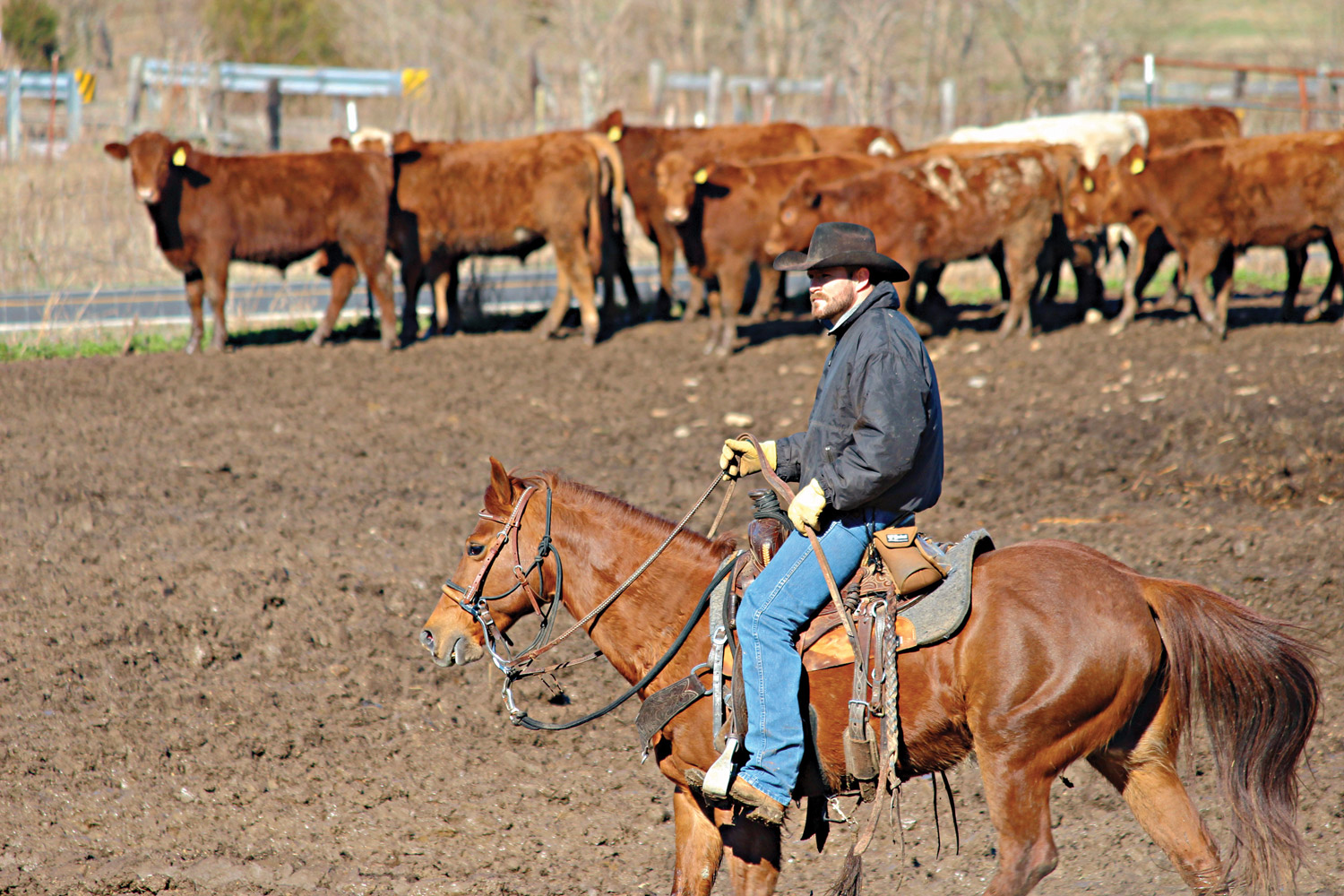
Pandemic or no pandemic, the issue of meat availability at the local level is complicated. Hord says the pandemic has renewed discussions about supporting local processing. Talks across federal and state agencies have focused on legislation that will make custom processing more accessible. The difficulty, according to Hord, is the variability of inspection regulations from state to state.
“Everyone wants more access to local processors but not at the possible expense of food safety,” he says. “And then there’s concern that the industry might overbuild. The ‘buy local, know your food’ trend has been around for a while and looks to continue, but there’s no guarantee of customer support. Local products are not generally less expensive that those found in supermarkets.”
The Neales agree.
“Right now, there’s a definite need for and some level of security in the availability of our beef,” Ben says. “Moving forward, though, some of our customers will return to large groceries because of convenience and often price.”
Still, he believes many will stay with the local producers with whom they have established relationships and who they trust to produce quality products.
Lauren believes COVID-19 has changed some perceptions. Patrons of Light Hill Premium Meats feel more secure with local food suppliers.
“Our customers feel good about supporting us through direct sales, and they know that we’re also supporting them with high-quality, local products,” she says.
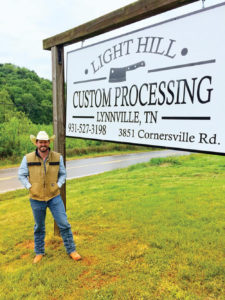
Find Light Hill Meats online at lighthillpremiummeats.com.
Find other Tennessee producers of beef and other commodities from vegetables, fruits, Christmas trees and more online at PickTNProducts.org, an online resource provided for producers and consumers by the Tennessee Department of Agriculture.
